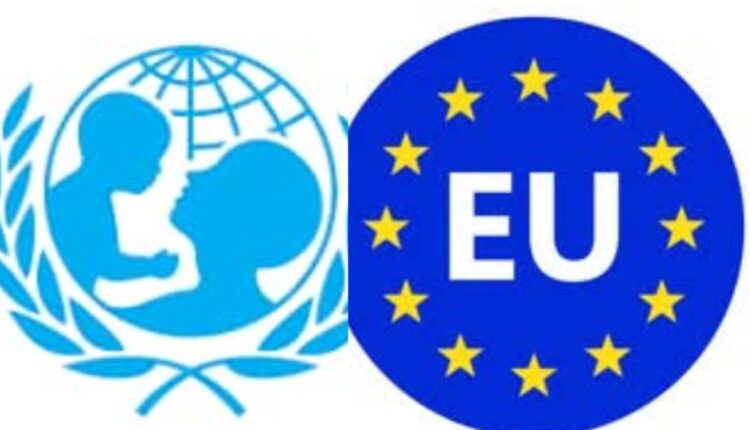UNICEF, EU, HiLWA Push for Greater Women’s Leadership in Jigawa’s Education Sector
Only 14% of school leaders are women, study reveals
By Ahmed Rufa’i, Dutse
The United Nations Children’s Fund (UNICEF), in partnership with the European Union (EU) and the High-Level Women Advocates (HiLWA), has called for increased inclusion of women in leadership and decision-making positions across Jigawa State’s basic education sector.
The call was made during a dissemination workshop on “The Role of Women in Leadership and Decision-Making Positions in the Basic Education Sector in Jigawa State”, held at the Manpower Development Institute (MDI), Dutse.

Speaking at the event, the Chief of UNICEF Field Office, Kano, Mr. Rahama Rihood Mohammed, said empowering women to lead in education enhances school management, strengthens community participation, and improves learning outcomes—especially for girls.
“Despite their qualifications and commitment, most women remain excluded from the leadership roles that shape how schools are managed and how children learn,” Mohammed said.
He revealed that while women constitute the majority of the teaching workforce in Jigawa, only 14 percent occupy leadership positions such as head teachers or deputies.
According to him, the study identified cultural norms, family expectations, and institutional biases as major barriers limiting women’s progression into leadership roles, even where policies supporting gender inclusion already exist.
“When girls see women leading their schools, they see what they can become,” the UNICEF representative emphasized.
Mohammed reaffirmed UNICEF’s commitment to working with HiLWA, the EU, the Jigawa State Ministry of Basic Education, and the State Universal Basic Education Board (SUBEB) to translate the study’s findings into actionable policies.
He said the agency will continue to support initiatives promoting transparent recruitment, gender-sensitive promotion systems, mentorship networks for female teachers, and community dialogues aimed at challenging social barriers to women’s leadership.
“Advancing women’s leadership in education is not just a matter of fairness—it’s about building a stronger, more inclusive future for our children,” he added.
Mohammed commended HiLWA for initiating the study and praised the EU for its financial and technical support, describing the research as “timely, evidence-based, and thought-provoking.”

